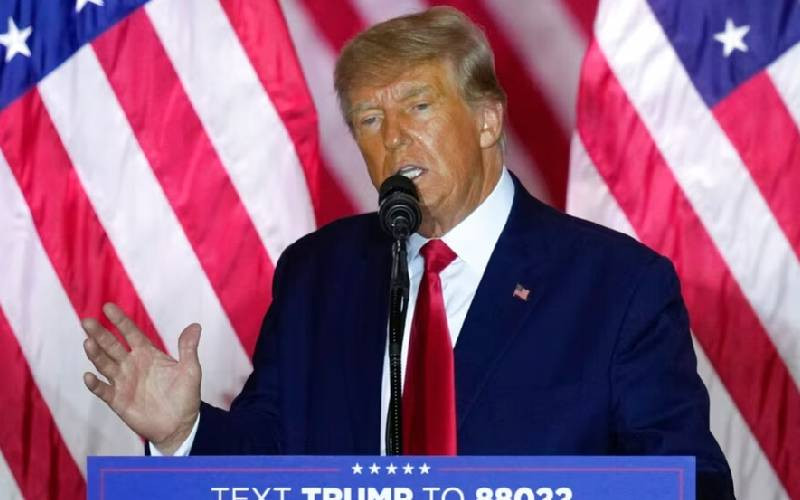Media houses are banned from showing politicians abusing and threatening each other in political rallies as the country readies for the General Election in August next year.
The Communications Authority (CA) has moved to ensure media houses do not help politicians and their cronies to inflame passions.
In new broadcast rules published in the Kenya Gazette, the telecommunications regulator warned all free-to-air radio and television stations that six months from now, they will have to pay up to Sh1 million or have their bosses hauled to jail for up to three years if they do not keep abusive politicians off the airwaves.
“Broadcasters shall ensure political messages do not contain attacks on individuals, their families, ethnic background, race, religion or their associations. Broadcasters shall ensure political messages do not contain offensive, threatening, abusive, obscene or profane language,” reads the code signed by the authority’s Director General Francis Wangusi.
The fines for the offences are contained in the regulations to enforce the Kenya Information and Communications Act.
In short, utterances where politicians have called each other “high priest of graft”, “prophet of doom”, “lord of poverty”, or where they have abused each others’ mothers “hii pesa sio ya mama yako” will not be aired anymore.
Close monitoring
The CA will not monitor these rallies; this will have to be monitored for hate speech by the National Cohesion and Integration Commission, and the Independent Electoral and Boundaries Commission, but if they are broadcast, then the authority will come in.
But the political parties are still allowed to peddle “political propaganda” as they campaign for power.
The political parties and candidates for elective seats will have to pay for the airtime for their propaganda material, and they will have to be identified before and after the propaganda broadcast, so that the content is not confused for news.
“All broadcasts of election propaganda shall be identified through the words “paid for by” followed by the name of the candidate or political party for whom the election propaganda is being broadcast,” Wangusi noted in the regulations.
The rules direct media houses to ensure they provide “equitable” access to news coverage, clearly skewing the playing field towards the big political parties and coalitions, which have huge resources and a large support base.
Political propaganda
“The amount of airtime allotted to political propaganda and the rates to be charged for it shall be consistent to all parties and candidates,” the programming code says.
The CA has also outlawed any one from having a programme or a sponsor to openly show their support for a political party or any candidate on air.
“No programme or sponsor shall be allowed to manifestly favour or oppose any candidate or political party. However, the right to objectively inform the public on significant issues and events and the duty to provide a forum for the discussion of such issues and events shall be respected,” reads the code.
Unlike what happens in other democracies where private media houses are free to take positions on which candidate to support in an election, in Kenya, they will have to be neutral. Manipulation of footage, or subjective coverage is banned under the new rules.
“Broadcasters shall not employ technological gimmicks like doctoring pictures of political rallies to enlarge crowds. No broadcasters shall treat news during the election period to deliberately give some candidates undue advantage over their rivals,” reads the code.
The programme code also require any journalist, news anchor or contributor who appears on air and wishes to join politics to either take leave, quit or be fired.
Public interest
“Radio and television broadcasters have an obligation to serve the public interest at all times. In this regard, the Public Service Obligations of broadcasters include but are not limited to... providing equitable coverage and opportunities to registered political parties participating in an election and in particular to presidential candidates; ensuring special access and rates for appearances by political candidates,” the authority noted.
Meanwhile, the Kenya Film Classification Board yesterday said it was monitoring all free-to-air broadcasts and gathering evidence against media houses that breach the tough new rules gazetted by the CA.
The Board Chief Executive Ezekiel Mutua said all media houses will be monitored, issued with compliance certificates.
The guilty ones of content breach will not be issued with the key documents which will then determine if the CA will renew their licences. The board and CA will next week outline a detailed model of collaboration.
“If these new regulations are being felt as punitive then the media should blame themselves. Broadcasting of sexually suggestive content and airing of raunchy talk shows have continued unabated despite the media being aware that they are breaching the law. Such circumstances are what has invited the action by CA,” said Mutua.
—Additional reporting by Graham Kajilwa
 The Standard Group Plc is a multi-media organization with investments in media
platforms spanning newspaper print operations, television, radio broadcasting,
digital and online services. The Standard Group is recognized as a leading
multi-media house in Kenya with a key influence in matters of national and
international interest.
The Standard Group Plc is a multi-media organization with investments in media
platforms spanning newspaper print operations, television, radio broadcasting,
digital and online services. The Standard Group is recognized as a leading
multi-media house in Kenya with a key influence in matters of national and
international interest.
 The Standard Group Plc is a multi-media organization with investments in media
platforms spanning newspaper print operations, television, radio broadcasting,
digital and online services. The Standard Group is recognized as a leading
multi-media house in Kenya with a key influence in matters of national and
international interest.
The Standard Group Plc is a multi-media organization with investments in media
platforms spanning newspaper print operations, television, radio broadcasting,
digital and online services. The Standard Group is recognized as a leading
multi-media house in Kenya with a key influence in matters of national and
international interest.








